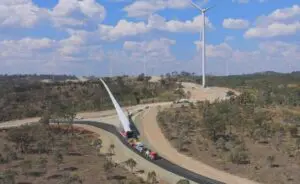Legislation to change the way solar households are compensated for their distributed energy generation has passed through the Victorian Parliament’s Lower House, despite the opposition Liberal Party voting against the first-of-its-kind solar pricing reform.
The proposed amendments to the state’s solar tariff were introduced to Parliament on Wednesday, based on the findings of an Essential Services Commission report that concluded the current FiT design did not adequately reward the value of rooftop solar on a number of levels.
In what amounted to a small, but not insignificant win for Australian solar households, the ESC report recommended the tariff be adjusted from a minimum rate of around 5c/kWh now to an average of between 6.5c-7c/kWh, to factor in time of export, location of generator, and avoided greenhouse gas emissions.
With the support of government, this means that from next July, solar households in Victoria will be the first in Australia to receive a feed-in tariff that directly reflects a climate change value, and a time of use component – although the value of rooftop solar to the network still has not been factored in, but may not amount to much.
Support for the bill was not unanimous, however. As we foreshadowed yesterday – and as Liberal MP David Southwick made clear in various Tweets – the legislation failed to win the support of the Victorian Liberals.
Their decision to oppose the tariff rise means that they want solar power to be paid less than coal fired power – Victoria futures prices for 2017 are trading at 6.5c/kWh. The Coalition wanted the solar tariff stuck at around 5c/kWh.
Friends of the Earth described the Coalition vote as “a slap in the face” for the state’s solar homes.
“(Opposition leader) Matthew Guy’s decision to vote against a fair price for solar is out of step with the community’s vision for a renewable energy powered future,” said Leigh Ewbank, Friends of the Earth’s renewable energy spokesperson.
“Guy has disappointed the community by voting against solar power.”
But the Opposition’s position on coal vs renewables is not exactly a secret. Liberal energy spokesman David Southwick told the Herald Sun on Thursday that an increase to the state’s solar feed-in tariff was “pretty much a new environment tax that will be subsidising a very small proportion of the community at the expense of those without solar panels.
“This comes at a time when Victorians are threatened with higher electricity prices in anticipation of the Hazelwood power station closure,” he said.











